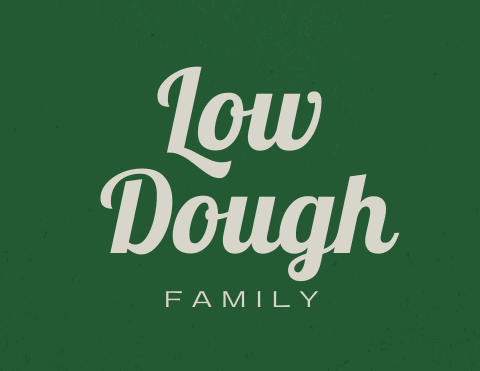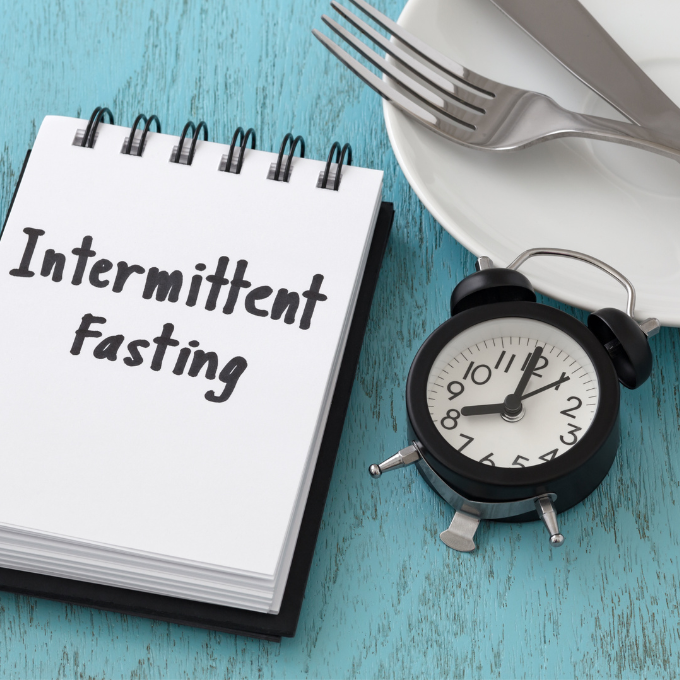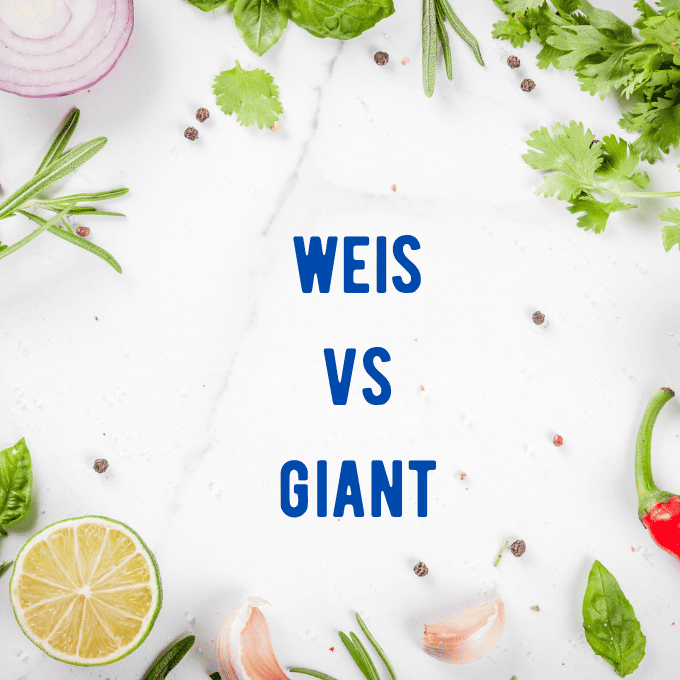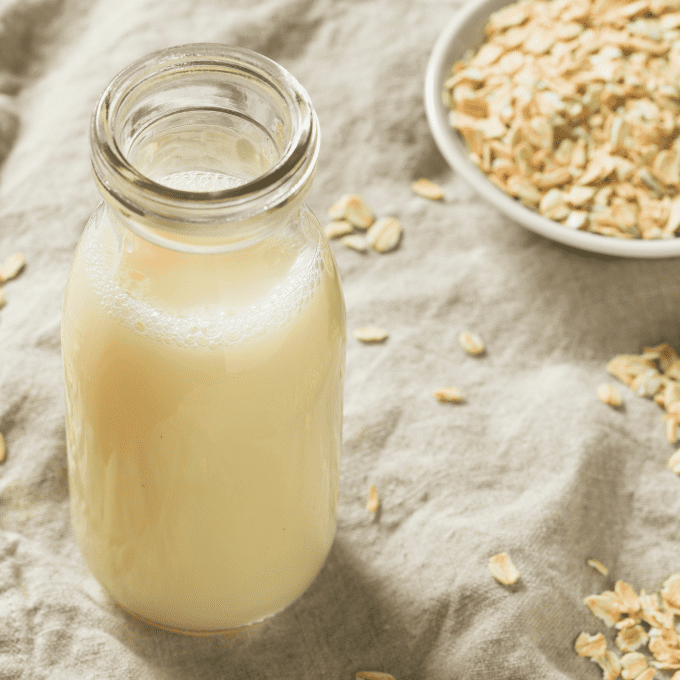Intermittent Fasting to save money on Groceries?
Intermittent fasting has become a very fad like anti-diet and more and more people have been trying it out. Some friends of mine recently told me that not only did they lose weight and lower their cholesterol, but they noticed their grocery bill also went down significantly.
Intermittent fasting comes in many forms, but the basics are based on a fasting or not eating window and an eating window. One of the most popular fasts is where you eat for 8 hours a day and then not eat for the remaining 16 hours a day except for water and no calorie drinks.
It seems plausible that if you are only eating for 1/3 of your day that you will save money on your grocery bill. Let’s deep dive further into intermittent fasting to see if you could save money and lose weight!
Please keep in mind that you should talk to your doctor before starting a fasting program. Kids under 18, pregnant women, and diabetics are not recommended to use intermittent fasting.
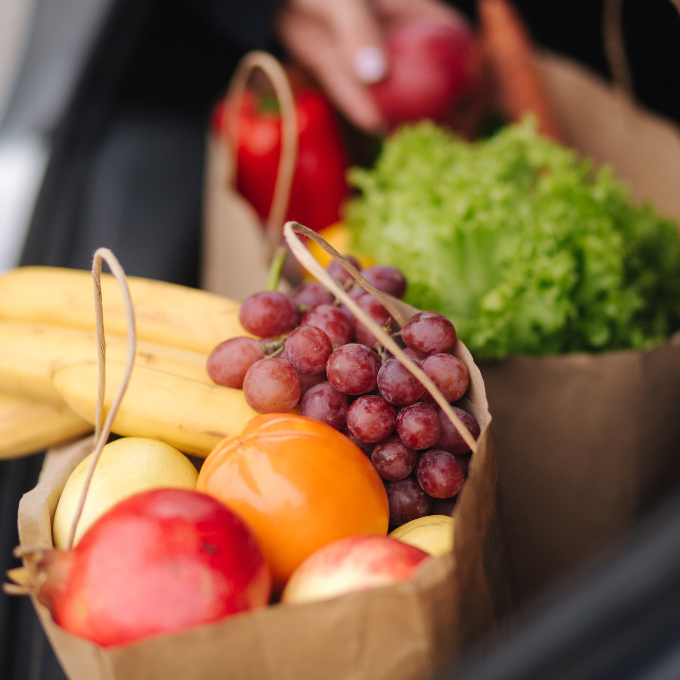
Intermittent fasting to save on groceries?
The average grocery bill is going to cover breakfasts, lunches, dinners, and snacks. If you are intermittent fasting, you will still probably eat the same meals, but just in a smaller time frame.
One of the ways to make intermittent fasting more successful for weight loss is to also look at what you are eating. If you currently eat a lot of fast food, high calorie snacks, and junk food, then you would want to shift your food choices into whole healthy foods.
Some promote intermittent fasting as an anti-diet, because instead of restricting your calories and food choices you are just setting a schedule of eating. Unfortunately, if you continue to eat junk foods instead of healthy foods in your eating window, you will end up with very little weight loss and not reaping the fasting health benefits.
If you continue to eat unhealthy foods, you are fasting but really you are just binge eating in a small window. Unhealthy foods in a small amount of time, will actually make you more tired and less likely to stick to a strict eating window.
To be successful and reap the health benefits of intermittent fasting you will need to combine you’re eating window with healthy and filling foods. You can check out this list of “25 Cheap food that fills you up when you are broke!” for some ideas of foods to buy while fasting.
My friends that have done intermittent fasting have suggested skipping breakfast completely or at least pushing it back to 10am or 11am to start the eating window later in the day.
Other people also recommend having set fasting days per week or fasting every other day. Some will eat regularly for 5 days a week, and only fast for 2 days a week. Some people maintain a fast per day every day for long periods of time too.
There are so many different fasting plan options, so I recommend picking one that will work with your current schedule. If that plan does not seem to be successful after 2-4 weeks, you can always adjust to different plan.
Most fasters say it takes 2-4 weeks to fully change your eating habits and to not struggle with hunger and waiting for your next eating window.

Does fasting save money?
If you are switching from high calorie and processed foods to more whole and healthy foods, then fasting can save you money on your grocery budget!
Just think how much less your trip to the supermarket would be if you are not buying soda, chips, sweets, candy, ice cream and other snack foods. Now you don’t have to outlaw any foods while fasting, but you will want to use them in moderation and very sparingly.
There is a great myth that you have to spend a lot of money to eat healthy, and that is just not true. Most processed and ready to eat foods are actually more expensive than buy whole foods and cooking them yourself.
Cooking and eating healthier does not have to be more expensive, but it will typically take longer to prepare and make your meals and snacks.
I am a grazer and can snack all day long instead of making and eating a true meal. If I swap a 13 oz party size bag of Cheddar and Sour Cream chips for cut celery and carrots, I can save a ton of calories and spend about the same amount of money.
| Grocery Item | Cost | Calories |
| Great Value Cheddar & Sour Cream Chips (13oz) | $2.37 | 1950 |
| 1 lb. bag of carrots | $0.98 | 186 |
| 1 lb. bag of celery | $1.34 | 64 |
I am spending about the same amount of money on chips or on carrots and celery, but the calorie difference is insane! Even if I use ranch dressing, peanut butter, or hummus with my carrots/celery sticks, I can consume so many less calories compared to a bag of chips and spend the same amount of money.
Next time I sit down at the computer, I will seriously rethink casually munching on chips and try to make a better snack decision with fruits or vegetables.
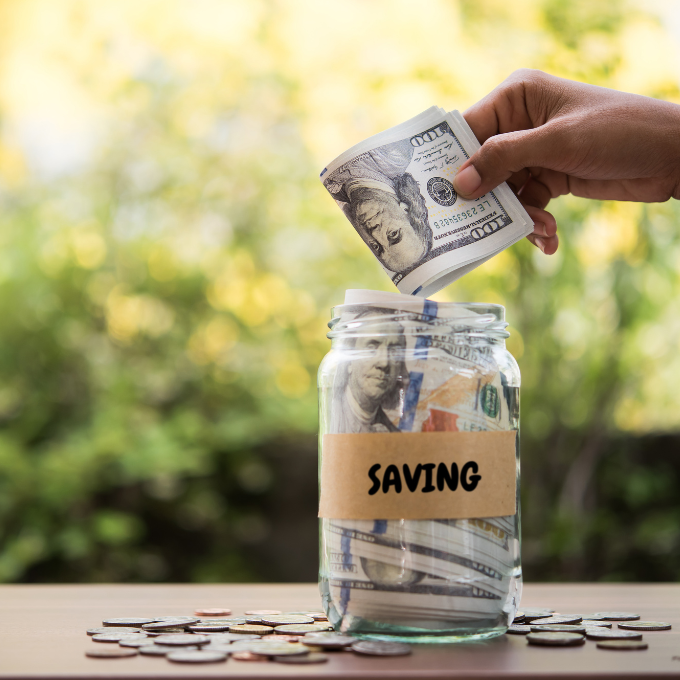
How much money can you save by intermittent fasting?
If you are intermittent fasting and focusing on eating healthier whole and non-processed foods, you can save a lot of money on your grocery budget!
Now one of the common downfalls of dieting, is people thinking they need to switch over to organic foods to be healthier. Lots of studies have shown that the nutritional difference and even the pesticide exposure is not that much different between regular and organic produce.
Stick to regular fruits, vegetables, and whole foods like rice or a whole wheat pasta and you will start to notice a huge difference in your weight loss as well as your grocery budget.
We tend to think that quick and easy to prepare foods are worth the extra price, but in reality, these ultra-processed foods are just making us fat. Even so-called diet foods are ultra-processed and full of sugar and salt to make them taste better.
Next time you reach for a reduced fat, low fat, no fat, or diet food look at the ingredient list and check out the sodium and sugar levels. Not only are some of these foods really expensive, but they are not very healthy for you.
In some cases, people reported saving anywhere from 40-60% on their grocery budget by intermittent fasting and cutting out processed foods.
Whether you try intermittent fasting to lose weight, or just start eating healthier foods, you can save a lot on your grocery budget. For more tips for saving at the grocery store, check out “When you Grocery Shop Matters!” and “Rain Checks at the Grocery Store?“
